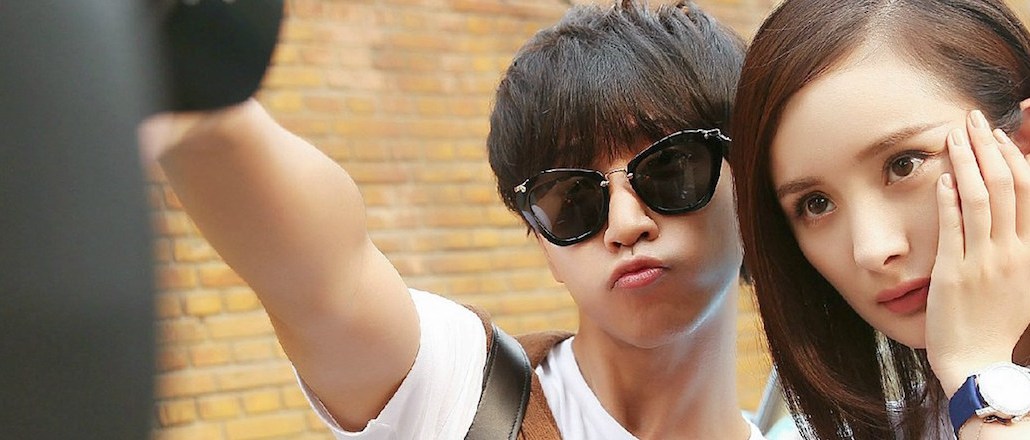Save 50% on a 3-month Digiday+ membership. Ends Dec 5.

If advertisers in the U.S. are unclear on how much to pay social media influencers, the landscape is even murkier in China, especially on the popular messaging app WeChat.
WeChat has more than 762 million monthly active users, but the closed network is a hard nut to crack for many marketers. So influencers, called “key opinion leaders” over there, are a shortcut for brands to build a personal connection with their audience on a platform that fans trust.
High-end opinion leaders usually have verified accounts in “Subscription” on WeChat, where they publish sponsored posts or videos for brands, while smaller influencers with personal accounts post on their “Moments” to increase brand visibility.
Prices for influencer marketing on WeChat can range from a couple hundred dollars to tens of thousands of dollars for an opinion leader to write about a brand multiple times. And certain Chinese celebrities can charge in the millions as the deal to be an ambassador on WeChat can also include public appearances, TV commercials and print ads, said Brian Buchwald, co-founder and CEO for data intelligence Bomoda. He’s also someone who has built a media business on WeChat before.
Here, then, are four leading key opinion leaders on WeChat and a look at how they work with brands, most of which are in fashion.
Gogoboi, fashion blogger and critic
With his unique brand of snark, Gogoboi comments on fashion trends and celebrities’ fashion tastes with words like “vulgar,” “failure” and “repugnant,” which is surprisingly received as refreshingly honest in China’s reserved culture.
 Given his fame, Gogoboi’s verified account on WeChat looks and feels like Gwyneth Paltrow’s lifestyle publication Goop. While Gogoboi writes posts on fashion trends and celebrity news, he has a mobile store on the platform where he curates and sells lifestyle products like Gucci fragrance and Keecie bags.
Given his fame, Gogoboi’s verified account on WeChat looks and feels like Gwyneth Paltrow’s lifestyle publication Goop. While Gogoboi writes posts on fashion trends and celebrity news, he has a mobile store on the platform where he curates and sells lifestyle products like Gucci fragrance and Keecie bags.
Ad position: web_incontent_pos1
“Chinese bloggers are very open to say that they are paid or sponsored, because consumers over there are more accepting. In comparison, influencers in North America are selling in a subtler way; otherwise, they may risk losing followers,” said Jennifer Li, CEO of influencer marketing company MuseFind. “The key difference between the two markets is not trust itself but how trust is orchestrated by the influencer.”
Gogoboi also sends out prizes like Givenchy lipstick to randomly selected fans during important Chinese holidays. It’s unclear if those giveaways are sponsored by brands as there is no organization in China like the FTC pushing ad disclosures.
MK, makeup artist
The Michelle Phan of WeChat, MK has a large array of content from style tips to skin-care product recommendations.

Her posts net tens of thousands of pageviews. For example, MK recently examined which Zara design makes Asian girls look taller, in a post that generated over 10,000 pageviews. And in another post that has 35,000 pageviews, MK tests different Korean BB creams — including IOPE, Laneige and Innisfree — to find out the best one.
Ad position: web_incontent_pos2
There are no benchmarks for what constitutes a truly viral post, but MK’s popularity has not gone unnoticed by brands. While there are no disclosure regulations in China, it is clear, with the sheer volume of products she touts, that MK has no problem monetizing: She has an email address posted at the bottom of her page for brands with commercial requests.
Mimeng, blogger
Mimeng used to be the editor-in-chief for Nanfang Daily Newspaper and then left the publisher to start her own movie production company. After her film business failed, Mimeng then started her own WeChat account where she talks about relationships, marriage and sex and love, in a smart, fearless and humorous way. Her price per sponsored post can generate as much as 100,000 views and go up to 300,000 yuan (around $45,000), according to a Chinese publication.
Huohuo Han, street stylist
Han is a celebrity-style influencer. Before he became an online personality in 2009, Han worked as project manager for Marie Claire China. Han claims to be “the most handsome guy on earth.” He pals around many Chinese celebrities, including model and actress Angelababy, who is described by Western media as the Chinese Kim Kardashian.
Han rarely endorses brands via his WeChat account where he mainly blogs about fashion trends. But many well-known companies like Ray-Ban and Chanel have featured in his street style on WeChat.
More in Media

What publishers are wishing for this holiday season: End AI scraping and determine AI-powered audience value
Publishers want a fair, structured, regulated AI environment and they also want to define what the next decade of audience metrics looks like.

Digiday+ Research Subscription Index 2025: Subscription strategies from Bloomberg, The New York Times, Vox and others
Digiday’s third annual Subscription Index examines and measures publishers’ subscription strategies to identify common approaches and key tactics among Bloomberg, The New York Times, Vox and others.

From lawsuits to lobbying: How publishers are fighting AI
We may be closing out 2025, but publishers aren’t retreating from the battle of AI search — some are escalating it, and they expect the fight to stretch deep into 2026.
Ad position: web_bfu
